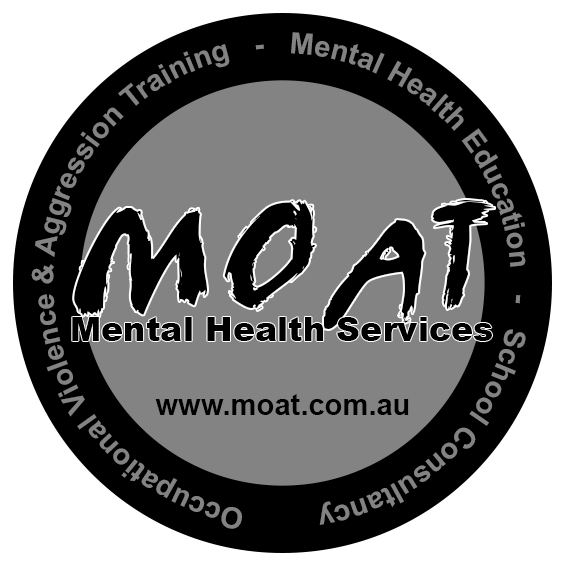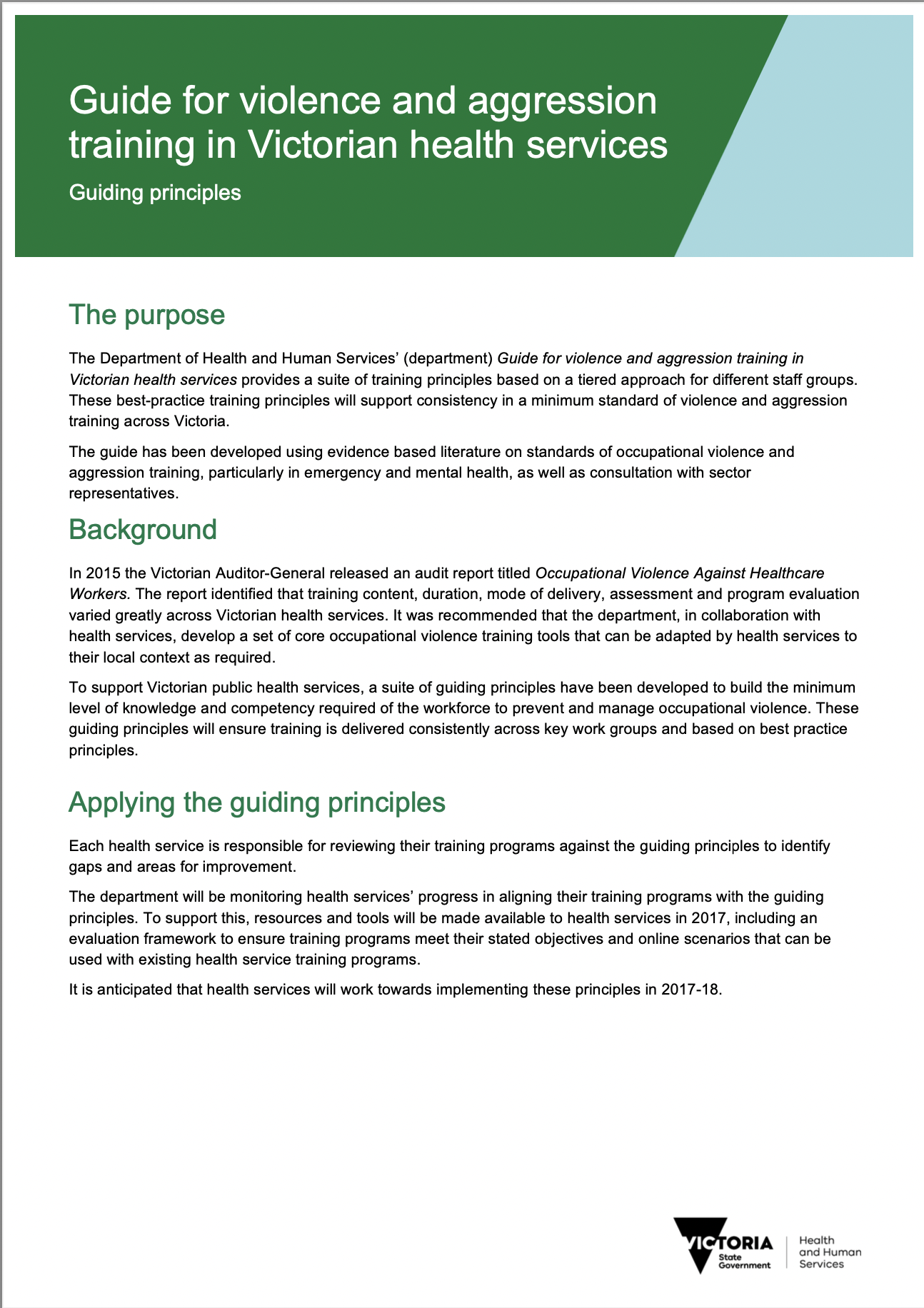OVA training content
The content of this training package is aligned with all of the relevant OVA guidelines and initiatives released by the Department of Health, and the Office of The Chief Psychiatrist.
The standard for OVA training in Victorian Healthcare is the DoH “Guide for violence and aggression training in Victorian health services (2017) - MOAT: Mental Health Services’ OVA training package has been mapped to every element of that standard.
The single-day OVA training sessions include the following topics:
Moving towards zero tolerance:
Duty of Care and OH&S legislation
Defining occupational violence
Crimes Act Victoria – potential charges
Defining and creating a culture of zero tolerance
Why people escalate and some have difficulty self-regulating
Potential barriers to a safe workplace:
Neurochemistry
Best practice when de-escalating people with mental illness
Social and interpersonal barriers
Forming therapeutic relationships
Strategies to defuse potential anger
Risk Assessment:
Assessing OVA risk in the workplace across four domains –
elements particular to outreach practitioners
environmental factors
factors related to the potential aggressor
factors that we introduce to the scenario
Duress alarms
Self-awareness of stress and anxiety
Layers of the brain and managing escalations:
The layers of the brain and their general functions
How stress impacts on our ability to remain cognitive, and may lead to explosive behaviour
Strategies to remain in the cognitive brain in times of stress
Strategies to de-escalate the explosive behaviour
Multi-sensory de-escalation theory and practical strategies
Challenging behaviours:
Why de-escalation skills are imperative
Ten considerations when de-escalating the angry person
Was their violence controllable?
The ABC approach to understanding behavioural change
Functions of inappropriate behaviour
Natural consequences of inappropriate behaviour
Consistency throughout the staff team
The use of behavioural contracts
Running a de-escalation (Code Grey / Black where relevant)
Considerations when restraining patients / consumers (where relevant)
Data from 2016 – 2021 healthcare post-training evaluations for a metropolitan Melbourne health network (4,978 participants).
Percentage of participants who responded positively to each post-evaluation question:
“Facilitator’s ability to answer questions” – 99.88%
Program content
“Appropriate content” – 99.80%
“Current material” – 99.93%
Participants would “recommend the course to others” – 99.65%
Please contact Bryan Jeffrey to discuss providing MOAT: Mental Health Services’ OVA training package for your staff team.


